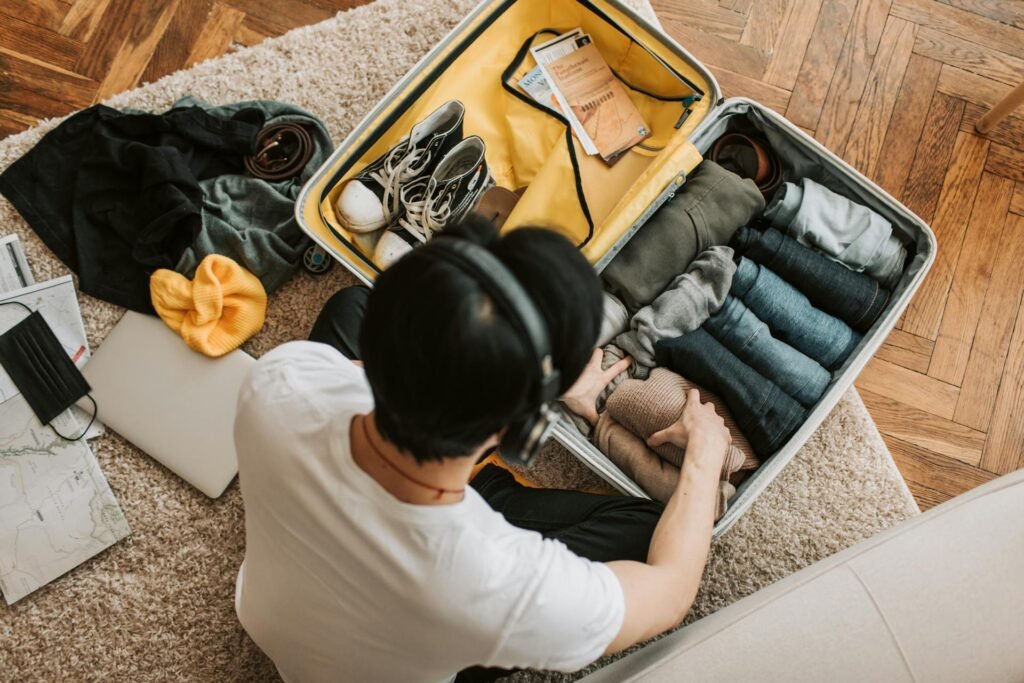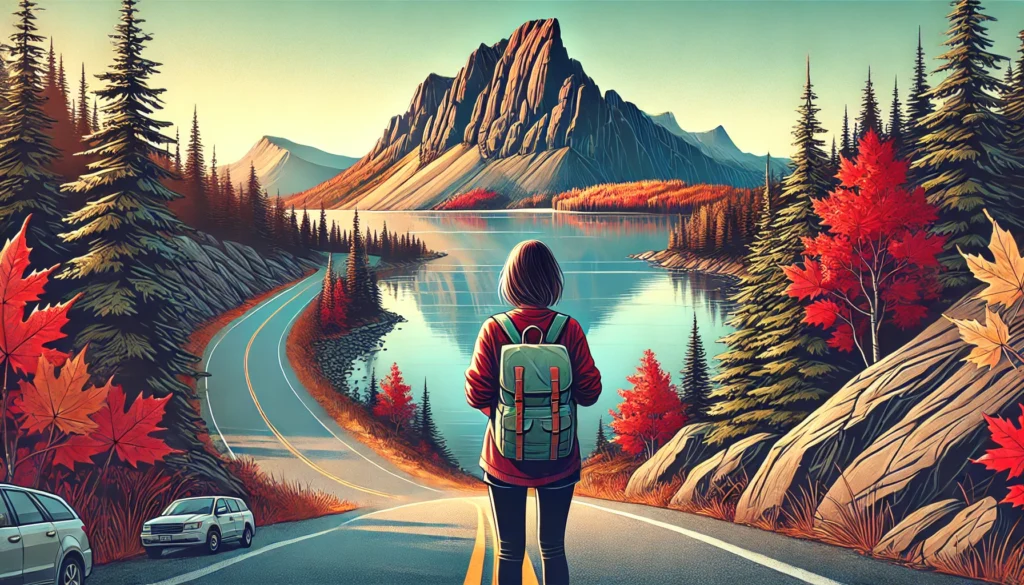Are you getting ready to explore the vast beauty of Canada, a country known for its stunning landscapes, welcoming locals, and rich cultural tapestry? Before you embark on your adventure through the Great White North, it’s important to be well-prepared. From practical travel tips to top attractions, here’s everything you need to know to make your journey smooth, fun, and unforgettable.
Getting Ready for Takeoff: Essential Information for Travelers
-
Travel Documents: Canada welcomes visitors from all over the world, but you’ll need the right documentation to enter. Depending on your nationality, a valid passport is required, and some travelers may need a visa or an Electronic Travel Authorization (eTA). If you’re traveling from the U.S. by land or sea, check the latest entry requirements with Canadian border authorities.
-
ArriveCAN App: Save time at the airport by using the ArriveCAN app. This free tool allows you to submit your customs and immigration information electronically, streamlining your arrival experience.
-
Money Matters: Canada’s currency is the Canadian Dollar (CAD), and credit cards are widely accepted. However, it’s always a good idea to carry some cash for local markets or smaller vendors. ATMs are easy to find in most cities.
-
Staying Connected: Avoid expensive phone charges by downloading a travel SIM or purchasing a local SIM card for cheaper data and calls. Many cafes, restaurants, and public spaces offer free Wi-Fi, so staying connected won’t be a problem.
-
Time Zones: Canada spans six different time zones, so depending on where you’re headed, you may need to adjust your watch. For convenience, use time zone apps to stay on track, especially if you’re hopping between provinces.
What to Pack: Weather and Clothing Tips
Canada is known for its diverse climates, so packing the right gear is key to a comfortable trip. Here are a few tips:
- Winter (November to March): Warm layers, waterproof outerwear, and winter boots are a must if you’re visiting during the colder months. Coastal regions like Vancouver are milder, but inland areas like Alberta experience harsh winters.
- Summer (June to August): Pack light layers, comfortable clothing, and sun protection for exploring in warmer temperatures. Don’t forget a swimsuit if you’re planning to visit lakes or beaches.
- Spring/Fall: Weather can be unpredictable during these transitional seasons. Bring a mix of warm layers, light jackets, and waterproof shoes.
Language and Cultural Insights
-
Languages Spoken: Canada is officially bilingual, with both English and French as national languages. While English is commonly spoken throughout the country, French is predominant in Quebec. Learning basic phrases like “Bonjour” (hello) and “Merci” (thank you) will go a long way in Quebec and make locals appreciate your effort.
-
Politeness and Etiquette: Canadians are known for their politeness. Be sure to respect local customs, and when in doubt, a smile and a simple “thank you” will get you far!
Budgeting Your Canadian Adventure
Traveling through Canada can be done on a range of budgets. Here’s a general breakdown of daily expenses:
- Budget Traveler ($150–$175/day): Stay in hostels, eat street food, and use public transportation to explore cities affordably.
- Comfort Traveler ($200–$250/day): Opt for mid-range hotels, dine at restaurants, and enjoy guided tours or taxi services for convenience.
Top Canadian Experiences You Can’t Miss
Canada offers a variety of experiences, from urban adventures to natural wonders. Here are the must-see highlights:
-
City Life: Explore the bustling streets of Toronto, home to iconic landmarks like the CN Tower and Royal Ontario Museum. Montreal charms visitors with its European ambiance and delectable food, while Quebec City’s old-world architecture transports you to another era.
-
Nature’s Wonderland: Discover Canada’s wild side! Visit Banff National Park for stunning mountain vistas and turquoise lakes, go whale watching in British Columbia, or trek through the Canadian Rockies. National parks and nature reserves offer endless outdoor adventures like hiking, kayaking, and camping.
-
Niagara Falls: No visit to Canada is complete without witnessing the power of Niagara Falls. Take a boat tour, stroll along the scenic boardwalk, or visit the nearby town for additional activities like wine tasting and entertainment.

Smart Travel Tips for Young Adventurers
Stay at Hostels: Hostels offer budget-friendly accommodation and a chance to meet fellow travelers. Many hostels in cities like Toronto, Vancouver, and Montreal have communal spaces, perfect for making new friends.
Use Public Transport: Canadian cities are well-connected with public transportation networks. Purchase day passes to get unlimited rides on buses, subways, and trams for affordable and convenient travel.
Embrace Free Activities: Canada is filled with free attractions, from stunning public parks to museums offering free admission days. Don’t miss outdoor festivals, street art tours, and local markets for low-cost fun.
Respect Nature: Canada’s natural beauty is one of its greatest assets, and it’s important to protect it. Whether you’re hiking, camping, or simply enjoying the outdoors, follow the principles of “Leave No Trace” and respect wildlife.
Pack Smart: Avoid overpacking. A backpack with essentials like layered clothing, a rain jacket, comfortable shoes, and a reusable water bottle will be your best travel companion.
Final Thoughts
Canada is a land of endless possibilities, whether you’re seeking adventure, cultural immersion, or a laid-back getaway. With a little planning and the right gear, your Canadian journey will be filled with unforgettable memories. So get ready to explore the urban jungles, conquer the great outdoors, and immerse yourself in everything Canada has to offer!
Common questions :
What is the best time to visit Canada?
The best time to visit depends on your interests. Summer (June to August) is great for outdoor activities, while winter (December to February) offers skiing and winter sports. Fall (September to November) is ideal for colorful foliage.
How do I get a visa for Canada?
You can apply for a visitor visa online through the official Government of Canada website. Requirements vary depending on your nationality.
What are the top tourist attractions in Canada?
Popular attractions include Niagara Falls, Banff National Park, CN Tower in Toronto, and Quebec City’s Old Town.
Is Canada expensive to visit?
Canada can be expensive, but it depends on your travel style. Budget travelers can expect to spend around $150–$175 per day, while mid-range travelers may spend $200–$250.
Do I need travel insurance for Canada?
Yes, it’s recommended to have travel insurance to cover health emergencies, trip cancellations, or unexpected incidents while traveling in Canada.
Can I drive in Canada with my foreign license?
Yes, most foreign licenses are accepted for short-term visitors. However, it’s a good idea to check specific provincial rules and consider an International Driving Permit (IDP).
What is the weather like in Canada?
Canada’s weather varies by region. Winters are cold and snowy, especially in the north and central areas, while summers are warm, especially in southern provinces.
What is the currency of Canada?
The currency of Canada is the Canadian Dollar (CAD). Credit cards are widely accepted, but it’s good to carry some cash for smaller purchases.
Do people in Canada speak French?
Yes, English and French are the official languages of Canada. French is predominantly spoken in Quebec, but English is spoken widely across the country.
Is Canada safe for tourists?
Yes, Canada is generally considered one of the safest countries for tourists, with low crime rates and excellent healthcare facilities.
How can I travel around Canada?
You can travel around Canada by plane, train, bus, or car. Domestic flights connect major cities, while VIA Rail offers train routes across the country.
What foods should I try in Canada?
Must-try Canadian dishes include poutine (fries with cheese curds and gravy), butter tarts, maple syrup treats, and Montreal-style bagels.
What are the best cities to visit in Canada?
Top cities include Toronto, Vancouver, Montreal, Calgary, and Quebec City, each offering a unique cultural experience.
What wildlife can I see in Canada?
Canada is home to diverse wildlife, including bears, moose, whales, wolves, and beavers. You can spot animals in national parks and wilderness areas.
How much should I budget for a trip to Canada?
A budget traveler might spend $150–$175 per day, while a mid-range traveler could spend $200–$250 per day. Luxury travel costs more depending on accommodations and activities.
Can I see the Northern Lights in Canada?
Yes, the Northern Lights can be seen in Canada, especially in the northern regions such as Yukon, Nunavut, and parts of British Columbia and Alberta.
What are the requirements for entering Canada?
Travelers need a valid passport and may require a visa or eTA depending on their nationality. COVID-19 requirements may still apply, so check before traveling.
Is tipping common in Canada?
Yes, tipping is customary in Canada. It’s common to tip around 15-20% in restaurants and cafes. Taxi drivers and hotel staff also appreciate small tips.
Can I visit Canada with my pet?
Yes, you can bring pets into Canada, but you’ll need proof of rabies vaccination and other health documentation. Check Canadian customs for specific requirements.
What are the best outdoor activities in Canada?
Canada is an outdoor paradise with activities like hiking, skiing, camping, canoeing, and wildlife watching available across its vast wilderness.



